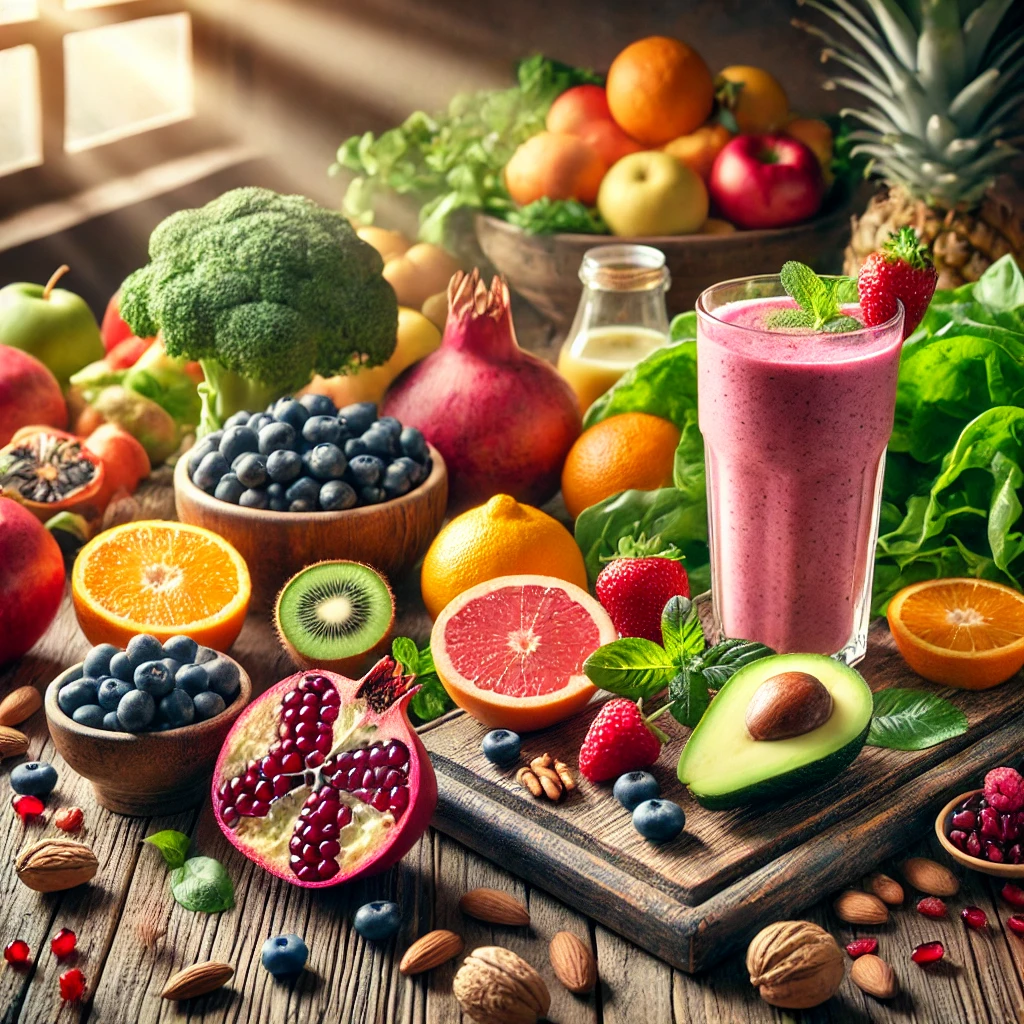In our quest for longevity and vitality, few nutritional concepts have received as much attention as antioxidants. These powerful compounds play a crucial role in combating oxidative stress, a major contributor to aging and various diseases. The right antioxidant-rich diet can significantly impact how we age and how resilient our bodies remain against illness. This article explores the science behind antioxidants, their benefits, and how to incorporate them into your daily eating habits.
Understanding Antioxidants and Free Radicals
To appreciate the value of antioxidants, we must first understand their nemesis: free radicals. Free radicals are unstable molecules that contain an unpaired electron, making them highly reactive. During normal metabolic processes, our bodies naturally produce these molecules, but environmental factors such as pollution, UV radiation, cigarette smoke, and poor diet can significantly increase their production.
When free radicals accumulate faster than our bodies can neutralize them, they cause oxidative stress. This process damages cells, proteins, and DNA, accelerating aging and increasing the risk of chronic diseases such as heart disease, cancer, diabetes, and neurodegenerative conditions.
Antioxidants function as molecular defenders, donating electrons to free radicals without becoming unstable themselves. This neutralization prevents the chain reaction of cellular damage that free radicals typically initiate.
Types of Dietary Antioxidants
Nature has provided us with numerous antioxidants, each with unique properties and benefits:
Vitamin C (Ascorbic Acid): Found abundantly in citrus fruits, strawberries, bell peppers, and broccoli, vitamin C supports immune function and collagen production, vital for skin elasticity.
Vitamin E: Present in nuts, seeds, and vegetable oils, vitamin E protects cell membranes and supports skin health.
Carotenoids: This group includes beta-carotene, lycopene, and lutein, found in colorful fruits and vegetables like carrots, tomatoes, and leafy greens. They support eye health and may reduce cancer risk.
Flavonoids: These plant compounds are found in tea, cocoa, berries, and red wine. They have anti-inflammatory properties and may improve heart health.
Selenium: This mineral, available in Brazil nuts, seafood, and whole grains, works with antioxidant enzymes to fight oxidative stress.
Anthocyanins: These give berries their vibrant colors and are linked to improved cognitive function and reduced inflammation.
Benefits of an Antioxidant-Rich Diet
Research consistently demonstrates that diets high in antioxidants offer multiple health benefits:
Delayed Aging Process: Antioxidants combat the oxidative damage that accelerates visible aging signs like wrinkles and skin elasticity loss. They also help maintain cognitive function as we age.
Reduced Chronic Disease Risk: Regular consumption of antioxidant-rich foods correlates with lower rates of heart disease, certain cancers, and diabetes. The anti-inflammatory properties of many antioxidants play a crucial role in this protection.
Enhanced Immune Function: Certain antioxidants, particularly vitamin C and E, support immune cell function, helping the body resist infections more effectively.
Improved Eye Health: Lutein and zeaxanthin protect against age-related macular degeneration and cataracts, maintaining vision as we age.
Better Skin Health: Antioxidants help protect skin from UV damage, reduce inflammation, and support collagen production, keeping skin healthier and more youthful.
Creating an Antioxidant-Rich Diet
To maximize antioxidant intake, focus on these strategies:
Embrace the Rainbow: Consuming fruits and vegetables of various colors ensures a diverse antioxidant profile. Each color represents different beneficial compounds.
Go for Whole Foods: Whole foods contain complex mixtures of antioxidants that work synergistically. Supplements rarely provide the same benefits.
Prioritize Plant Foods: While some animal products contain antioxidants, plant foods generally offer higher concentrations and greater variety.
Mindful Cooking Methods: Some cooking methods can preserve or even enhance antioxidant availability, while others may destroy these compounds. Gentle steaming often preserves nutrients better than high-heat methods.
Balance is Key: No single antioxidant works alone. A diverse diet provides the full spectrum of protective compounds needed for optimal health.
Top Antioxidant Foods to Include
- Berries: Blueberries, strawberries, blackberries, and raspberries rank among the highest antioxidant foods.
- Dark Chocolate: High-cocoa chocolate (70%+) contains flavonoids that support heart health.
- Nuts and Seeds: Especially walnuts, pecans, and sunflower seeds.
- Leafy Greens: Spinach, kale, and other dark greens provide numerous antioxidants.
- Colorful Vegetables: Red cabbage, beets, artichokes, and red bell peppers are particularly rich sources.
- Green Tea: Contains catechins with powerful antioxidant properties.
- Spices: Turmeric, cinnamon, and oregano can add antioxidant power to meals.
- Beans: Particularly red beans and black beans contain antioxidant compounds.
Beyond Diet: Supporting Antioxidant Function
While diet is crucial, other lifestyle factors influence oxidative stress levels:
Regular Exercise: Moderate physical activity boosts the body’s natural antioxidant defenses.
Adequate Sleep: Poor sleep increases oxidative stress; aim for 7-9 quality hours nightly.
Stress Management: Chronic stress depletes antioxidant reserves; practices like meditation can help.
Limited Toxin Exposure: Reduce exposure to cigarette smoke, excessive alcohol, and environmental pollutants.
Conclusion
An antioxidant-rich diet represents one of the most accessible and effective strategies for promoting longevity and preventing age-related decline. By incorporating diverse, colorful whole foods into daily meals, we can harness nature’s protective compounds to support cellular health and resilience. While antioxidants aren’t a magic bullet against aging, they form a cornerstone of any evidence-based approach to healthy aging and disease prevention. As research continues to unveil the complex relationships between diet and health, the importance of these powerful compounds becomes increasingly clear.





